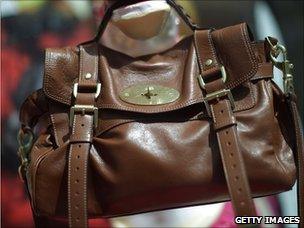UK looks to US on piracy blocking
- Published

Ways to stop websites illegally streaming sports matches should be investigated, said Ed Vaizey
Websites hosting pirated material could be blocked in the UK if the US introduces a similar system, according to culture minister Ed Vaizey.
He told a conference in London that internet providers in the States were "rumoured" to be considering a voluntary filtering.
Such an agreement would be a "game changer" elsewhere, said Mr Vaizey.
There have been no official announcements from the US to substantiate the minister's claim.
To date, UK ISPs have resisted pressure from rights holders to police their users.
Odd attitude
Mr Vaizey struck a bullish note on the subject of copyright during his keynote speech at the Intellect Consumer Electronics conference.
"If people are streaming live football without permission we should look at ways we can stop them," he said. "People have the right to earn money from content they create."
However, he remained tight-lipped on what came out of last week's meeting between UK ISPs and content providers to discuss website blocking.
Mr Vaizey's suggestion that similar talks were taking place in the US was clearly intended to move forward the debate at home.
"A voluntary agreement may come out of the US and if that does happen it could be a game-changer," he said.
In a dig at ISPs, he said he found "their attitude odd", especially BT and TalkTalk's failed legal challenge to the Digital Economy Act (DEA).
The DEA is aimed mainly at preventing piracy via peer-to-peer file-sharing but as people move away from that route, it also makes provision to block access to some websites.
It allows content providers to apply for an injunction against ISPs that do not restrict access to illegal streaming sites.
The Motion Picture Association has done just that, taking BT, the UK's largest consumer ISP, to court over linking to members-only index site Newzbin.
The MPA wants BT to block Newzbin with the same system that stops access to sites hosting child sex abuse images.
The members-only website aggregates a large amount of the illegally copied material found on Usenet discussion forums.
The case is due to be heard next week.
Free speech

Few would complain about sites peddling fake handbags, said Mr Vaizey
Another conference speaker Neil Berkett, the chief executive of Virgin Media, said there was no current agreement between UK content providers and ISPs.
"We still have a way to go to create an environment where the two sides see eye-to-eye," he said.
"How do you ensure that content is protected in an age where a whole generation thinks that stealing is just fine?" he asked.
"Beating them over the head with a stick is not a good start. What is needed is models that encourage people to change their behaviour, subscriptions that are cheap enough so that people think 'I'm better off getting a full array of quality music' ", he said.
The US government has pledged to pursue those who link to illegal streaming sites, including extraditing individuals from other countries.
The issue has attracted some high-profile critics, such as Google chairman Eric Schmidt.
He vowed that the search engine would fight any attempts at web blocking. He warned that putting blocking measures into legislation would set a dangerous precedent for censorious governments around the world who might be tempted to use it as a political tool.
Mr Vaizey said that critics of website blocking displayed a degree of hypocrisy.
"They [the US government] have been tough but if they took down a website linking to fake handbags no-one would bat an eyebrow," he said. "As soon as it is a site sharing music it becomes an issue about freedom of speech."
- Published24 June 2011
- Published25 May 2011
- Published18 March 2011